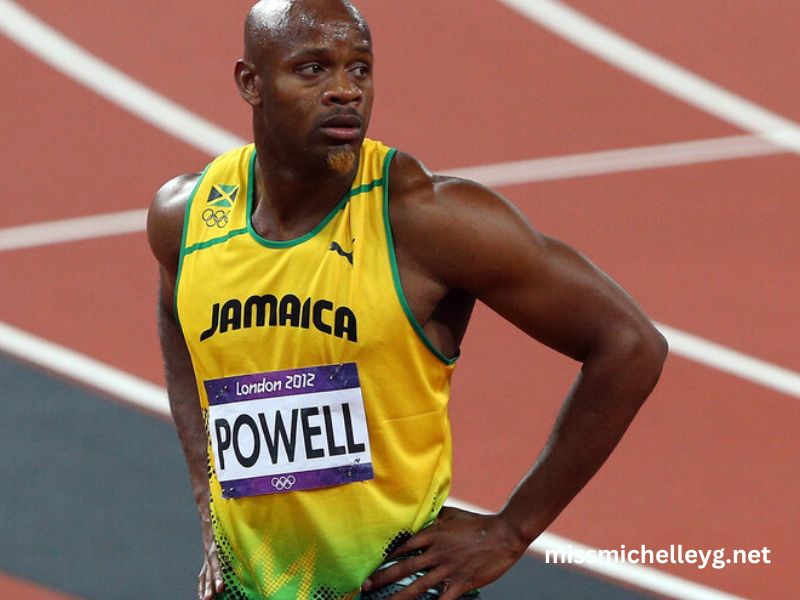Speed has always fascinated humanity. From Olympic races to world record attempts, we’re endlessly captivated by the question, “Who is the fastest person on Earth?” Whether it’s the explosive power of short-distance sprinters or the mechanical marvel of speed-enhancing technology, the story of human (and sometimes machine-assisted) speed is one of determination, athleticism, and awe-inspiring feats.
This blog will take you on a thrilling ride through the history of speed, showcasing the individuals who have shattered records and the science that has pushed human limits. By the end, you’ll not only know who holds the title of the fastest person on Earth but why they’ve earned it.
The History of Chasing Speed
The quest for speed isn’t a modern obsession—it’s timeless. For centuries, individuals have tested their physical limits to see just how fast the human body can go. From legendary foot races in ancient Greek times to the groundbreaking arena of modern competitive athletics, speed has always been the center of athletic excellence.
One of the earliest formal pursuits of speed occurred with the introduction of the 100-meter dash in the late 19th century. The event, now a staple of the Olympic Games, was seen as the ultimate test of raw human power and velocity. Over decades, athletes have continued to lower the world record, asking continually, “How fast can humans truly go?”
Today, the 100-meter dash remains iconic, where a single moment determines the fastest human on the planet.
Who Holds the Title? The King of Speed
When we talk about speed, one name immediately comes to mind—Usain Bolt. Hailing from Jamaica and affectionately dubbed “Lightning Bolt,” Usain Bolt cemented his legacy as the fastest person on Earth when he clocked a jaw-dropping 9.58 seconds in the 100-meter dash at the 2009 World Championships in Berlin.
What Makes Bolt Unstoppable?
Bolt’s dominance in sprinting is not mere coincidence. Several factors make him a unique force in the world of athletics:
- Exceptional Physique
At 6’5″, Bolt defies the average sprinter’s body type. His height gives him a longer stride, allowing him to cover more ground with fewer steps.
- Explosive Acceleration
While most sprinters excel in either explosive starts or finishing power, Bolt excels in both. His ability to generate massive speed over the final 60 meters is unparalleled.
- Mental Toughness
Beyond physical prowess, Bolt’s confidence and relaxed demeanor contribute significantly to his outstanding performances. On race days, his fun-loving personality contrasts starkly with the high-pressure environment of world-class track events.
To date, no one has officially broken Bolt’s records in the 100-meter (9.58 seconds) or 200-meter dash (19.19 seconds). He remains the benchmark for speed in human history.
Is Anyone Close to Breaking Bolt’s Record?
While athletes like Yohan Blake, Tyson Gay, and Justin Gatlin have delivered performances close to Bolt’s times, no one has quite matched his record-breaking speed. However, records are made to be broken, and with advancements in training techniques, nutrition, and biomechanics, experts believe it’s only a matter of time before someone ascends to Bolt-level speed—or surpasses it.
One name worth mentioning is Fred Kerley, the reigning champion pushing the boundaries of modern sprinting. Could he or another rising star take the crown in the next few years? Only time will tell, but the competition is thrilling to watch.
The Science Behind Speed
How does one actually achieve the raw speed required to claim the title of the fastest person on Earth? It boils down to a combination of factors:
Genetics
Some individuals are simply born with athletic advantages, such as a high proportion of fast-twitch muscle fibers. These fibers generate the rapid bursts of power critical to sprinting.
Training and Technique
Sprinters dedicate years to refining their starts, perfecting their strides, and maximizing efficiency. A tenth of a second off a start time can mean the difference between gold and silver.
Nutrition and Recovery
Optimal performance requires a body fueled by the right nutrients. Elite sprinters follow precise diets and recovery protocols to stay in peak condition year-round.
Biomechanics
From tailored running shoes to motion analysis during training, biomechanics plays a crucial role in shaving milliseconds off times. These advancements allow athletes to adjust their form and unlock maximum efficiency.
What About Assistance? The Rise of Technology in Speed
The concept of “fastest person” extends beyond unaided human performance. Technology has made its presence known in events like cycling, swimming, and even running. For example, carbon-fiber “super spikes” have revolutionized sprinting gear by reducing energy loss and enhancing propulsion.
And don’t forget speed-enhancing records in other endeavors, such as wheelchair racing (with figures like David Weir dominating) or adaptive sporting categories that continue to push the limits of human achievement.
Speed Isn’t Just About Running
While Bolt holds the 100-meter crown, other forms of speed deserve recognition:
- Speed Skating
Dutch athletes like Sven Kramer dominate ice rinks, reaching thrilling speeds on skates.
- Swimming
Michael Phelps, while not literally sprinting, showcased unparalleled speed and athleticism in water.
- Cycling
Cyclists like Chris Hoy have shattered speed barriers powered solely by their legs.
These achievements remind us that speed takes many forms and disciplines.
Where Do We Go From Here?
Speed records will continue to be broken as the human species evolves. From faster sprint times to groundbreaking technological enhancements, the future promises to redefine what it means to be “the fastest person on Earth.”
World-class athletes won’t stop pushing the boundaries—not in the 100-meter dash or beyond. And we, the spectators, will continue to marvel at the wonders of human capability.
Want to Be Inspired? Keep Watching Records Fall
Wondering who the next Usain Bolt might be? Whoever it is, we’ll be there, cheering from the sidelines, watching as humanity moves the goalposts yet again. Speed may be a fleeting moment, but its impact endures forever.
Stay tuned for updates on track legends, speed records, and science-backed ways to maximize performance. Because the race isn’t just about crossing the finish line—it’s about chasing the impossible.






